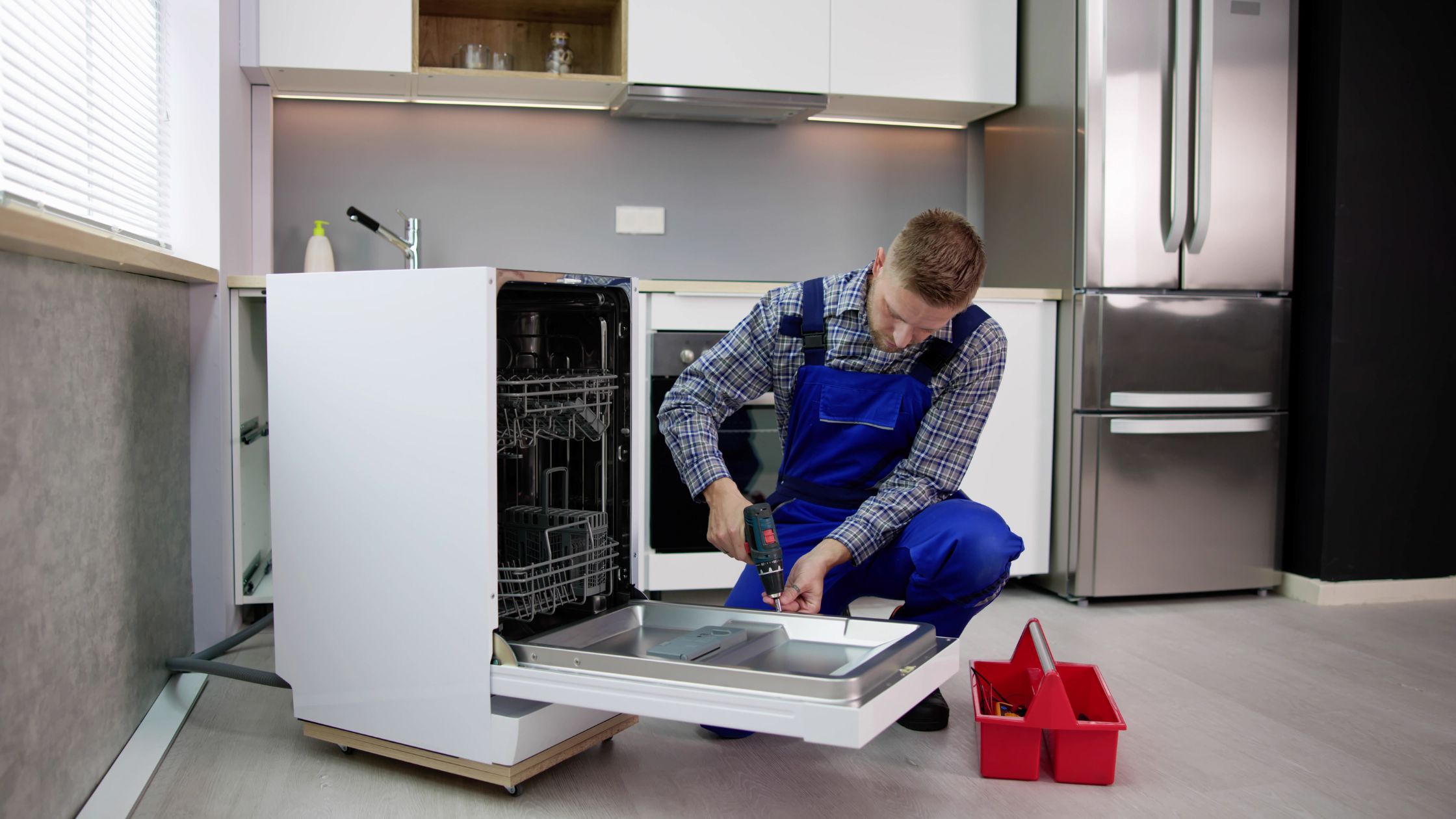The Ultimate Overview to Recognizing Home Appliance Repair in your home
When your fridge quits cooling or your oven refuses to warm, it can really feel frustrating. Comprehending appliance fixing in the house can save you time and cash. You'll find out to identify symptoms, make use of necessary devices, and adhere to a systematic troubleshooting process. However before you start, there are vital security precautions you need to think about. What are the most usual troubles, and how can you repair them? Allow's check out the fundamentals.
Typical Device Troubles and Their Signs and symptoms
When your devices start breaking down, it's essential to recognize the indicators beforehand. Ignoring them can result in larger concerns and pricey repairs. If your refrigerator isn't cooling down appropriately, you may see warm areas or condensation developing. This might suggest a stopping working compressor or a blocked vent.Your dish washer might reveal issues through dirty meals or uncommon noises throughout cycles. If you hear grinding or clanking, it's time to investigate.A washing machine that will not spin or drain pipes can leave you with soaked washing, recommending a clogged drainpipe or a malfunctioning pump.Lastly, if your stove's temperature level seems off or it takes for life to preheat, you may be handling a defective thermostat. By remaining alert to these symptoms, you can resolve problems prior to they intensify into significant repair services.
Vital Devices for Home Appliance Fixing
When you're dealing with appliance repair services in your home, having the right tools is necessary. Basic hand devices like screwdrivers and pliers will assist you take apart and repair various appliances, while electrical testing devices ensure you're working securely with circuitry. Allow's look at what you need to begin on your fixing journey.
Standard Hand Devices
Having the right tools is essential for efficient appliance repair at home. Start with a trusted screwdriver collection, including both flathead and Phillips types, as screws are usual in device setting up. Pliers are also important; they assist with gripping, turning, and cutting wires or tiny parts. A set of needle-nose pliers can get to tight places conveniently. You'll require a great adjustable wrench for tightening up or loosening up nuts and screws. An utility knife comes in handy for puncturing packaging or insulation. Don't neglect a strong workbench or surface to securely organize your tools and components. With these fundamental hand devices, you'll be well-prepared to take on most appliance repairs that come your method.
Electric Screening Tools
Alongside standard hand devices, electrical screening devices play a vital function in appliance repair service. These devices help you detect electric issues and assurance appliances work safely. A multimeter is important; it measures voltage, present, and resistance, permitting you to identify troubles quickly. A non-contact voltage tester is an additional must-have, allowing you discover real-time wires without making straight contact, improving your safety and security. Clamp meters are wonderful for determining existing flow in cables without separating them, saving you effort and time. In addition, circuit testers can rapidly inspect if electrical outlets are working appropriately. By utilizing these devices, you'll enhance your troubleshooting procedure and boost your repair service skills, making device maintenance a great deal much easier.
Step-by-Step Overview to Diagnosing Home Appliance Issues
When your device breaks down, it can be aggravating, yet diagnosing the problem does not need to be frustrating. You'll discover to recognize common problems and apply effective repairing strategies. Allow's stroll with the steps to get your appliance back in working order.
Common Home Appliance Troubles

Fixing Methods Clarified

Fixing Significant Cooking Area Home Appliances: A Closer Look
Have you ever before wondered exactly how to deal with common issues with your cooking area appliances? Fixing significant kitchen home appliances like refrigerators, ovens, and dishwashing machines can be easier than you believe. Beginning by determining the problem-- whether it's a refrigerator not cooling down or an oven that won't warm. Commonly, an easy reset or examining the source of power can solve the issue.For fridges, tidy the condenser coils and inspect the door seals. If your oven's not home heating, inspect the home heating element and thermostat. Dish washers could just need a tidy filter or a reset to obtain them back in activity. Always unplug the device before diving into repair work to assure your safety.Don' t forget to seek advice from the customer handbook for specific fixing ideas connected to your design. With a little bit of persistence and the right devices, you can with confidence tackle appliance fixings and save money at the same time!

Troubleshooting Washing Appliances: Tips and Techniques
When your washing appliances begin breaking down, it can really feel overwhelming, but fixing them does not have to be an inconvenience. Start by examining the power supply. Confirm the home appliance is plugged in and the outlet is functioning. Next off, examine the door or cover button; a damaged switch can protect against the machine from operating.For washers, if it's not rotating, check for out of balance loads. Redistributing the clothing may resolve the concern. If your dryer isn't heating, clean the lint filter and examine the vent for blockages.Listen for unusual noises; they can suggest a trouble. If your appliance is dripping, examine the hoses for cracks or loose links. File any type of mistake codes presented on electronic screens, as they can assist you in recognizing the concern. Finally, seek advice from the user handbook for details repairing tips related to your design.
Security Preventative Measures to Take During Fixes
Before you start any appliance repairs, it's vital to focus on security to avoid mishaps or injuries. Unplug the appliance or transform off the circuit breaker to ensure no power reaches it while you work. Use protected tools to minimize the threat of electrical shock. Put on safety and security goggles and handwear covers to safeguard yourself from sharp edges or debris (Washer dryer repair service Dependable Refrigeration).Make specific your work area is clean and well-lit, so you can see what you're doing. Keep children and pets far from the area to prevent interruptions and potential hazards. If you're managing gas appliances, be added cautious; look for leaks prior to proceeding.Take your time, and don't hurry via repair work. If you feel unclear about any kind of step, it's better to stop briefly and research study than to think. Complying with these safety measures will assist develop a safer atmosphere for your DIY device repair work job
When to Call a Specialist for Help
Just how do you recognize if it's time to call in an expert for appliance repair services? If you've tried basic troubleshooting without success, it's a clear indication. If your home appliance still won't begin or reveals uncommon sounds after resetting it, do not wait to seek expert help.When you notice leaks, smoke, or burning scents, prioritize safety and call a pro immediately. These issues can bring about even more substantial damages or present threats to your home.Also, if your appliance is under warranty, getting in touch with an expert is typically the very best course. Learn More Here They can assure that fixings will not nullify your guarantee, conserving you cash in the long run.Finally, if you're uncertain or unpleasant with complex repair work, it's important to leave it to the experts. Remember, taking on complicated problems without the right know-how can cause expensive errors. Depend on an expert when unsure!
Frequently Asked Questions
Just How Can I Protect Against Home Appliance Issues in the Future?
To stop device issues in the future, you must carry out regular website here upkeep, look for deterioration, clean filters, and stay clear of overloading. Staying aggressive will help expand their life expectancy and maintain them running smoothly.
What Are the A Lot Of Common DIY Appliance Fixing Mistakes?
You may overlook security precautions, miss fixing actions, or use incorrect devices when trying DIY home appliance repair work. Hurrying the process or neglecting producer standards can cause even more significant problems and pricey mistakes. Keep patient and notified!
How Do I Know if a Part Needs Substitute?
You can inform if a part needs substitute by looking for uncommon sounds, leaks, or inconsistent efficiency. If the device struggles to run appropriately or shows visible damage, it's likely time for a replacement.
Can I Make Use Of Generic Components for Appliance Repair Works?
Yes, you can use common components for device repair work, however determine they're suitable - Dryer repair Oro Valley Dependable Refrigeration & Appliance Repair Service. Generic parts may conserve you cash, yet they can influence efficiency or long life, so weigh your options thoroughly before making a decision
What Warranties Cover Appliance Repair Works?
Most device warranties cover repair work for producing defects, but they typically omit damage from misuse. Examine your service warranty terms thoroughly, as some may require using qualified technicians and initial components for insurance coverage to stay valid.